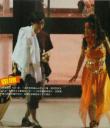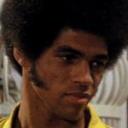Wednesday, January 6th, 2010
Three Views On Chinese Movies In The 2000s: Part I
Having spent part of my Christmas holidays watching THE FOUNDING OF A REPUBLIC, my heart is bursting with patriotic fervour. Compelled by the nationalist frenzy, I’ve decided to pay homage to “Father of the Nation” Sun Yat-Sen and his Three Principles of the 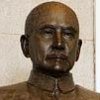 People by looking at the 2000s in Chinese movies from three different perspectives: the Most Valuable Film of the 2000s, the Best Films and Personal Favourites of the Double Zeros.
People by looking at the 2000s in Chinese movies from three different perspectives: the Most Valuable Film of the 2000s, the Best Films and Personal Favourites of the Double Zeros.
Now that I’ve protected the Kozo Entertainment Group’s interests in the Mainland market (surely, with millions of sites to monitor, government censors can’t possibly have the time to read past the first paragraph), let’s start with perspective number one: The Most Valuable Film of the 2000s.
Based on the concept of the Most Valuable Player award in sports (those outside of North America probably know this award as “player of the match”), my pick for the Most Valuable Film of the 2000s wasn’t the most technically accomplished movie of the decade or the one that was most artfully rendered. It is, however, an outstanding film that had a huge impact on Chinese movies in this past decade: CROUCHING TIGER HIDDEN DRAGON.
Released in 2000, CROUCHING TIGER HIDDEN DRAGON is, to date, the most commercially successful and globally acclaimed Chinese film ever. At box offices worldwide, it earned over US$213.5 million. At various film awards across the globe, it won a staggering seventy-three awards and prizes. At the world’s most prominent film awards, the Academy Awards, it won in four categories after being nominated in ten.
Besides making an impact internationally, CROUCHING TIGER HIDDEN DRAGON had a huge impact on the course of the Chinese movie industry. After the Asian Economic Crisis of 1997, there wasn’t much interest in making lush, historical costume epics. In between 1997 and the release of CROUCHING TIGER HIDDEN DRAGON, the only costume epic of note was Chen Kaige’s THE EMPEROR AND THE ASSASSIN. Movies were mostly small budget affairs consisting of offerings like Milkyway Image’s crime films or Wong Jing’s exploitation flicks. The big money was reserved for commercially driven projects like the special effects extravaganza STORM RIDERS or the star-driven vehicle TOKYO RAIDERS. Big-budget costume epics were viewed as risky ventures with little or no chance of financial return. By making a profit of close to US$200 million (the film cost US$17 million to produce), CROUCHING TIGER HIDDEN DRAGON revived investment into big-budget costume epics and made the genre in vogue for major Chinese directors.
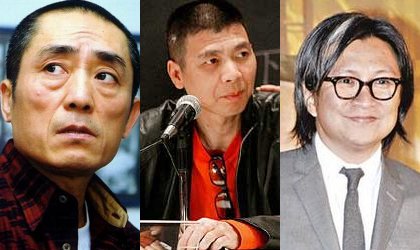
From left to right: Zhang Yimou, Feng Xiaogang, Peter Chan Ho-Sun
Take, for instance, Zhang Yimou, the man behind the opening ceremony for the Beijing Olympics. Zhang’s three films before CROUCHING TIGER HIDDEN DRAGON made its splash were the low-key affairs THE ROAD HOME, NOT ONE LESS and HAPPY TIMES. Zhang’s next three films: HERO, HOUSE OF FLYING DAGGERS and CURSE OF THE GOLDEN FLOWER.
Before CROUCHING TIGER HIDDEN DRAGON, Feng Xiaogang was known mostly for making successful Lunar New Films for the Mainland market. He stepped out of that genre by making THE BANQUET and THE ASSEMBLY.
Venturing into elaborate costume epics wasn’t limited to Mainland directors. Tsui Hark, who had been off making “Hollywood” films like KNOCK OFF and TIME AND TIDE, came back with THE LEGEND OF ZU and SEVEN SWORDS. Peter Chan Ho-Sun, famous for urban romances HE’S A WOMAN, SHE’S A MAN and COMRADES: ALMOST A LOVE STORY, threw his hat in the ring by directing THE WARLORDS and producing BODYGUARDS AND ASSASSINS. For his first Asian movie since HARD BOILED in 1992, John Woo — renown for his slick modern action movies - made RED CLIFF and RED CLIFF II.
With the emergence of China as an economic power in the 2000s, it is possible to legitimately argue that investment in big-budget costume epics would have happened eventually but it is impossible to argue against the idea that CROUCHING TIGER HIDDEN DRAGON was a catalyst in the choices that major Chinese filmmakers made in the past decade. There can be no doubt that the runaway success of CROUCHING TIGER HIDDEN DRAGON in late-2000/early-2001 set the table for Chinese filmmaking in the 2000s and is, undeniably, the Most Valuable Film of the decade.
Next time: The Best Films of the 2000s
BLOG POST EXTRA:
The impact of CROUCHING TIGER HIDDEN DRAGON wasn’t limited just to the Chinese movie industry, it had an effect on Hollywood as well. Paying, once again, tribute to Sun Yat-Sen and his Three Principles (still with me Mainland censors?), here are three ways the afterglow of the film manifested itself in the West:
1. It made Zhang Ziyi a commodity in Hollywood.
Without her breakthrough performance as Yu Jiao Long, there is no doubt that in the minds of most people over here in North America, she’d be mostly anonymous. Only people who had an interest in foreign films would possibly know of her and, even then, they may not remember her name. Most people would have thought of her in this way: “… that plucky country girl from that Zhang Yimou film - what was it called? THE ROAD HOME?”
Instead, CROUCHING TIGER HIDDEN DRAGON planted her firmly into the consciousness of movie fans. From 2001 to 2004, she probably had her pick of “compelling hot babe” roles in Hollywood action films. Her fame certainly helped land her the lead role in MEMOIRS OF A GEISHA and got her membership into the Academy of Motion Picture Arts and Sciences.
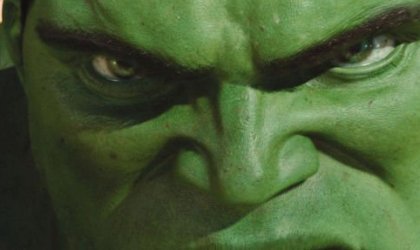
2. It deluded people into thinking that Ang Lee was the right person to direct HULK
In January 2001, at the height of the CROUCHING TIGER HIDDEN DRAGON phenomenon, Ang Lee was contacted by Universal Pictures/Marvel Studios to direct HULK1. While many viewed CROUCHING TIGER HIDDEN DRAGON as a straight-up wuxia action film, it was, in reality, a human drama film with wuxia touches. It wasn’t about the quest for a sacred sword or a hard-core tale about revenge, it was about a young girl finding her identity and the unfulfilled love between two warriors. CROUCHING TIGER HIDDEN DRAGON had more in common with past Ang Lee films like PUSHING HANDS, SENSE AND SENSIBILITY and EAT DRINK MAN WOMAN than classic wuxia movies like COME DRINK WITH ME or DRAGON GATE INN.
Predictably, HULK fizzled at the box office and Ang Lee returned to his human drama roots with the widely acclaimed BROKEBACK MOUNTAIN.
3. It helped the box office success of HERO in North America
Despite two years of dithering by Miramax, the company which owned North American distribution rights to HERO, the film opened on 2,031 screens and took in US$18 million on its opening weekend. The result set three milestones at the time2:
- Best end of August opening
- Second best opening for a foreign language film (behind THE PASSION OF THE CHRIST)
- Widest release for an Asian film
None of that happens without the momentum and goodwill created by CROUCHING TIGER HIDDEN DRAGON. It’s unfortunate that HERO squandered it all with that intellectually stimulating but emotionally disheartening ending. While HERO went on to make US$53 million in North America, subsequent releases did not open nearly as wide and, as a result, did not do as well. HOUSE OF FLYING DAGGERS took in US$11 million while KUNG FU HUSTLE earned US$18 million.
It’s hard to blame Zhang Yimou or HERO for the result, the ending was an artistic choice. It’s just unfortunate that the film was positioned as a mainstream movie even though it had an art film ending. People go to mainstream movies to be entertained, they don’t go to learn lessons or have intellectual constructs presented to them. AVATAR has made US$1 billion because, at its heart, it’s old-school entertainment. The good guys beat the bad guys and the guy gets the girl. If entertainment value was sacrificed for greater emphasis on environmental protection and the virtues of nature, AVATAR tanks.
The ending of HERO, which told viewers that unification and peace for the people are more important than personal vengeance, was fine as an intellectual argument but unsatisfying as a capper to a kick-ass martial arts movie. Let’s say OCEAN’S ELEVEN was released in 2010 in the current economic environment. Wouldn’t it leave a bad taste in viewers’ mouths if Danny Ocean and friends decided to turn themselves in and return their score after their elaborate scheme because they didn’t want to see the workers in the hotel and casino lose their jobs? I think that the ending of HERO soured many, many moviegoers on the genre and effectively killed any mainstream momentum that CROUCHING TIGER HIDDEN DRAGON fostered.
Image credits: Taiwan Tourism Bureau (Sun Yat-Sen statue), Star East Asia (Zhang Yimou), China Daily (Feng Xiaogang), Ming Pao (Peter Chan Ho-Sun), Universal Pictures (HULK)
FOOTNOTES:
1 “From ‘Tiger’ to U’s ‘Hulk’ for helmer”. Variety. January 12th, 2001.
2 “‘Hero’ Soars to Late August Record”. Box Office Mojo. August 29th, 2004.


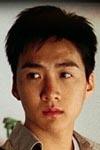 underwhelming result in
underwhelming result in 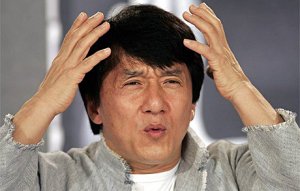
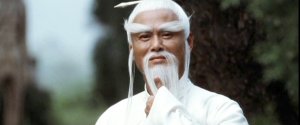
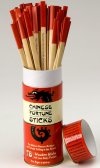 Add all that up and you don’t need a tube full of Chinese fortune telling sticks to figure that this remake is more likely to be jeered than cheered. Yes, the project may bring a big paycheque and yes, there may be some prestige in being associated with Will Smith but if THE KARATE KID remake bombs and THE SPY NEXT DOOR bombs then whispers that Jackie Chan has “lost it” and is “over the hill” will become a chorus. Someone in Big Brother Jackie’s camp needs to point out the downside of being involved with the remake and urge him to stay far, far away from it. Instead, his camp should urge him to go back to his roots and re-establish his core fan base by going ahead with a third ARMOUR OF GOD movie. Like
Add all that up and you don’t need a tube full of Chinese fortune telling sticks to figure that this remake is more likely to be jeered than cheered. Yes, the project may bring a big paycheque and yes, there may be some prestige in being associated with Will Smith but if THE KARATE KID remake bombs and THE SPY NEXT DOOR bombs then whispers that Jackie Chan has “lost it” and is “over the hill” will become a chorus. Someone in Big Brother Jackie’s camp needs to point out the downside of being involved with the remake and urge him to stay far, far away from it. Instead, his camp should urge him to go back to his roots and re-establish his core fan base by going ahead with a third ARMOUR OF GOD movie. Like 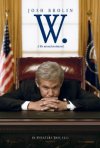 PRE-CONCEIVED NOTIONS: When I first heard about this film late last year, my inclination was to skip it. I follow the news and,
PRE-CONCEIVED NOTIONS: When I first heard about this film late last year, my inclination was to skip it. I follow the news and, 